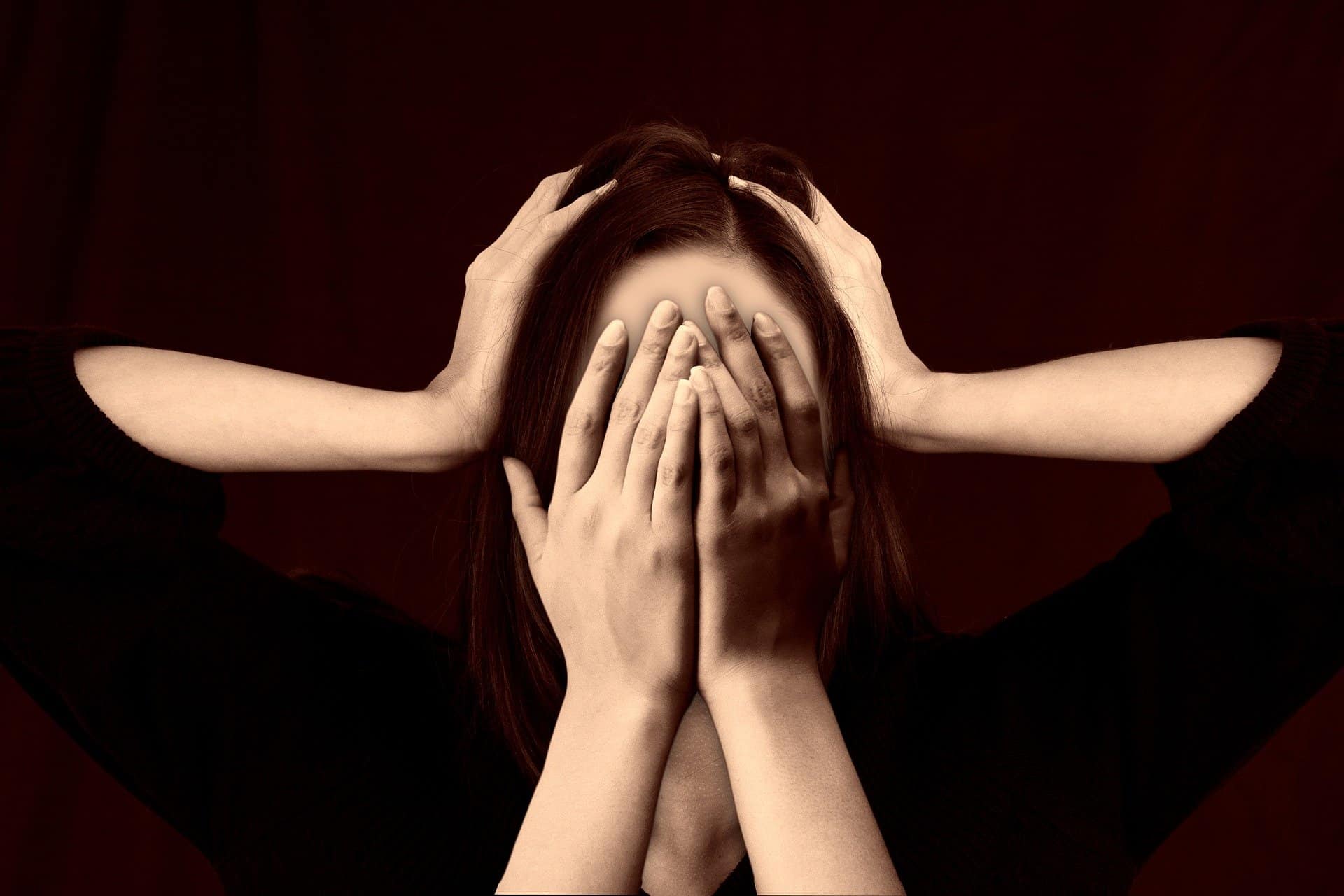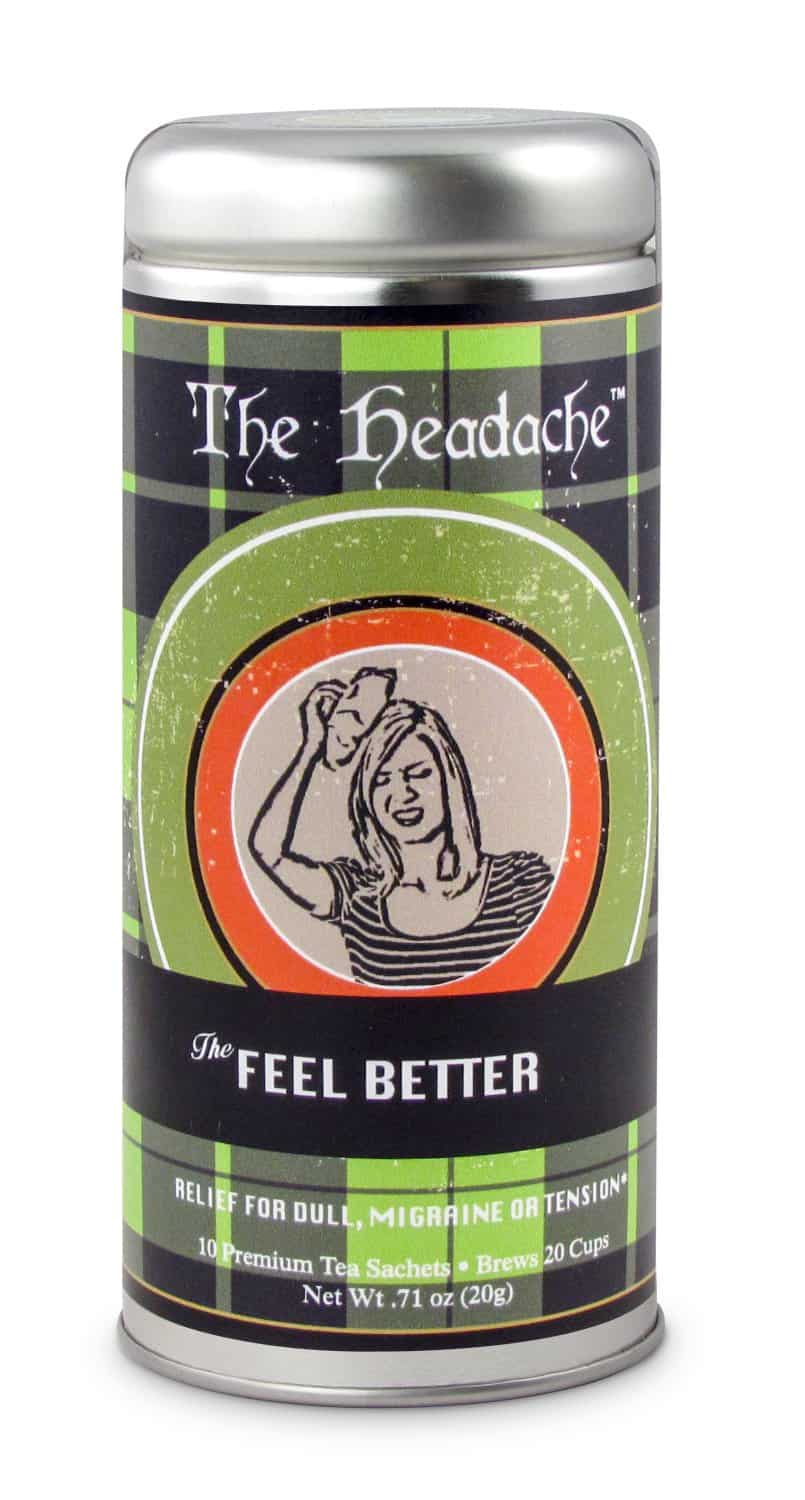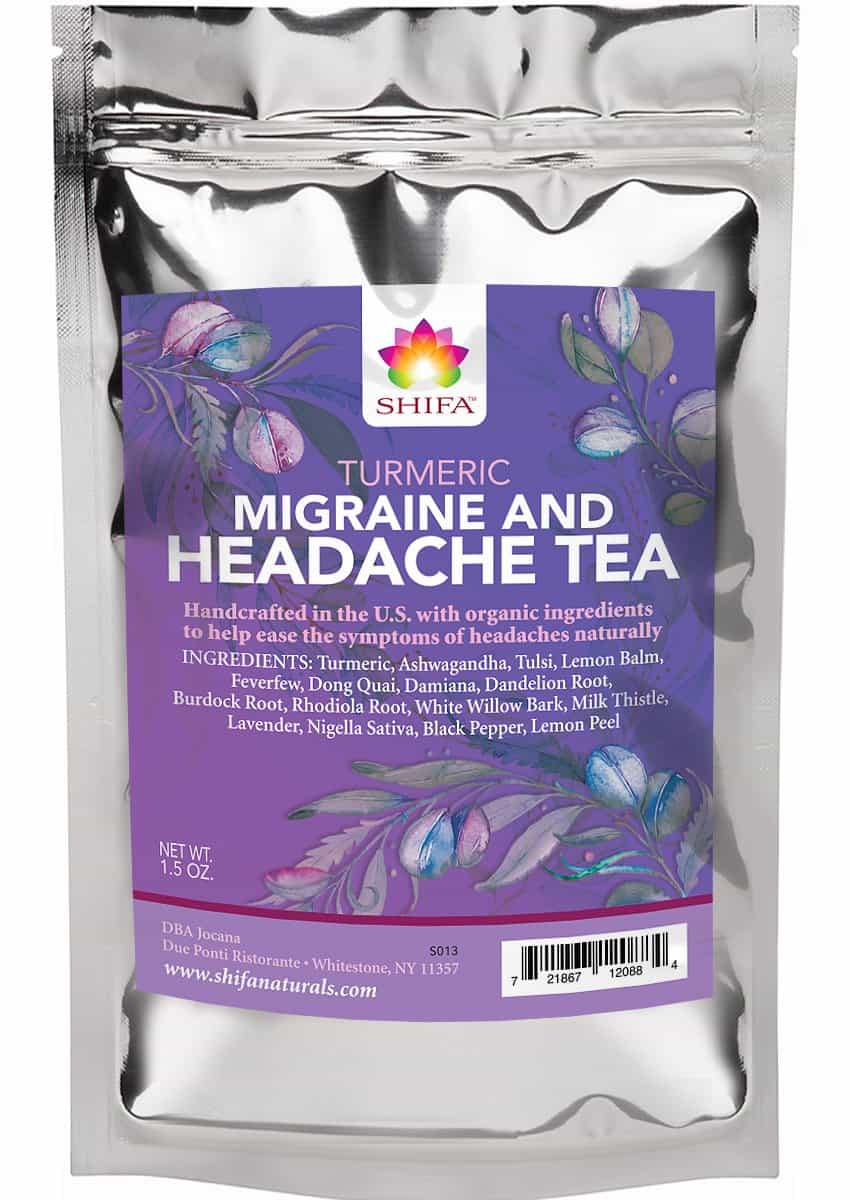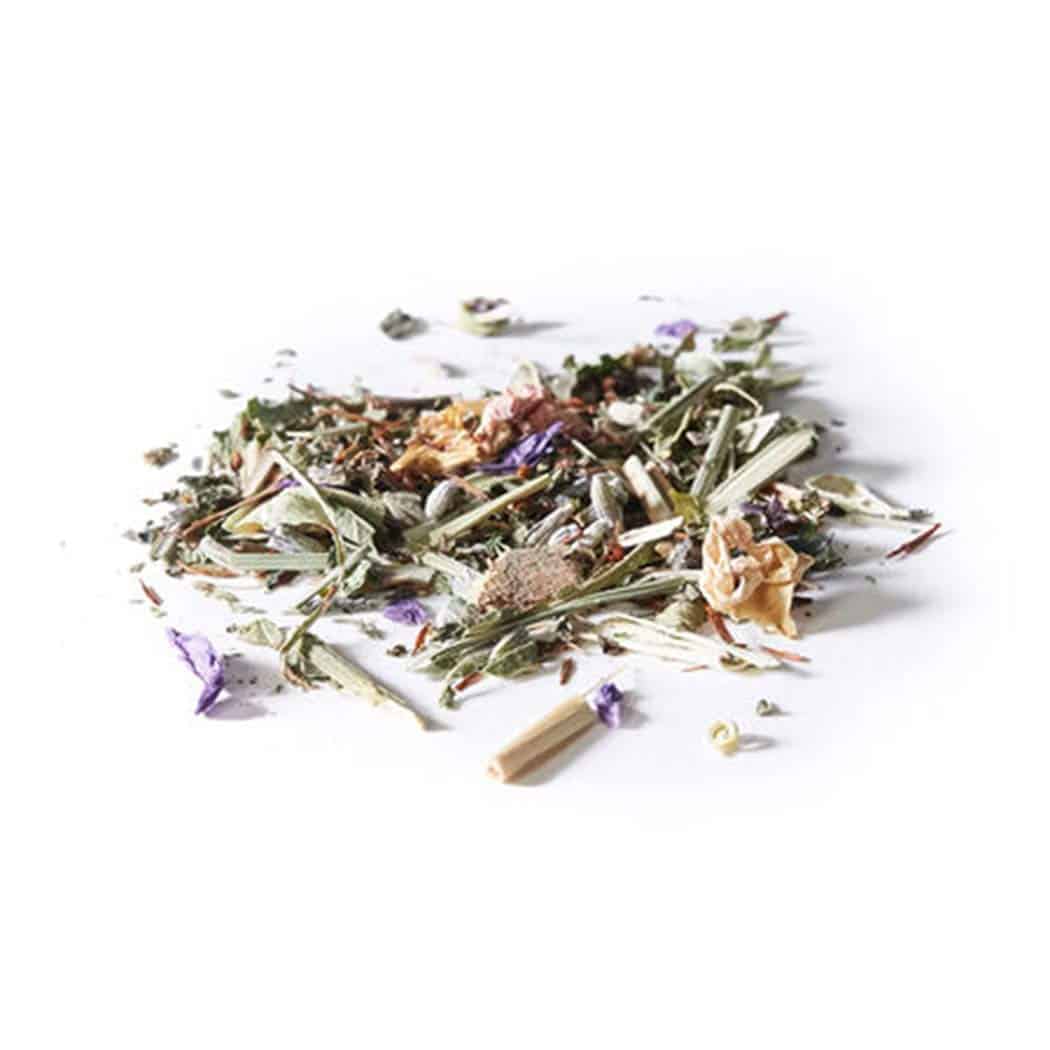Headaches can be serious indications of something wrong. When you are sure your headache is not (seeking professional advice). This article will give you the guidance and advice to tea that headache away. Tea is an all-around incredible healthy drink. Calming your headache is an easy task for a hot cup of water, tea, and herb.
Using herbs and teas. Opposed to over the counter medications is using a more clean and less toxic pain relief. What teas work and what are the best teas for headaches?

What are headaches
What causes a headache?
Headaches thrive on dehydration, so grab a glass of water to extinguish that ache. Water increases blood flow and oxygenation to the brain. Drink room temperature or warm water. Cold or iced water can exacerbate the headache or cause an unwanted “brain freeze”. We all know those are horrid.
Types of headaches:
Tension headaches are often caused by stress, eye strain, tired muscles, and other stress on the body. Affecting both sides of the head and come and go over time.
Migraine headaches hardly travel alone. They bring with them a few other symptoms like pain, throbbing pain, nausea, and dizziness. Affects only one side of the head or one spot. Can last for a few hours or up to a few days.
Cluster headaches are ones that come in waves that rock in and out and upset you and your plans. Cluster headaches happen in clusters of time. The attacks can last 15 minutes to a few hours. They can come on fast and leave the same way.
Chronic headaches occur for several days in a row. They can last a few hours for a short period of time or longer periods of time and longer periods.
Sinus headaches are dull throbbing pains. Generally in the sinus area or around the surface of the cheeks and forehead. Sometimes accompanied by nasal congestion or drainage.
Post-traumatic headaches come on about 2-3 days after the trauma. It starts gently and grows deeper over time. Can also cause lightheadedness, vertigo, memory loss, and irritability.
There are also less common headaches:
Exercise headaches – as the name suggests. Come on from the blood vessels swelling due to exercise. Don’t last very long a few hours to a day or two.
Hemicrania Continua – this headache is chronic. Symptoms such as red eyes, droopy eyelids, and a variety of pain. Some may experience nausea or light sensitivity.
Hormone headaches – From pregnancy to menopause. These headaches are caused by the influx or decrease in hormones. These headaches aline with your cycle.
New daily persistent headaches – These start suddenly and have no cause of why. Symptoms can be mild or severe. These headaches can last for months and suggest a doctor’s contact.
Rebound headaches – are from the overuse of medications. These headaches come from the chronic misuse of over the counter medications.
There are also some rare headaches:
- Ice pick
- Spinal
- Thunderclap

What are the teas for headaches?
Black or Green Tea – both true teas and not herbs. Both are instrumental in helping ease the pain of a headache and rich in antioxidants. Green and Black teas have clearly been used for centuries in Chinese medicine. Drinking a full cup helps increase the circulation of the body and reduce inflammation. By reducing the inflammation a headache can be eased. Green tea is also considered a detoxing agent. Detoxing the body ridding it of toxins can reduce stress and headaches.
Caution – If your headaches are caffeine sensitive it would be best to stick with an herbal remedy than a tea.
Feverfew Tea – a bitter-tasting herb used to help prevent a migraine from happening. Feverfew is a traditional medication that was used centuries ago for treating pain. Feverfew drops can be added to teas and beverages to help with the bitter taste but allow it to do its work on a headache. Adding honey, lemongrass, or licorice to the feverfew can give it a more palatable taste.
This study shows that by using feverfew the release of serotonin to be stopped as well as other things that can cause headaches.
Caution: Feverfew can induce labor, do not use if pregnant.
Peppermint Tea – is one of the top herbs/teas for pain relief and congestion relief. It’s a powerhouse of an herb. Attributes including opening nasal passages and calming headaches. Peppermint tea also calms upset stomachs and settles nerves. Peppermint signals the brain to calm down and relax the muscles. Relieve tension and headaches. When used as a tea peppermint leaves react with the water releasing phenols and flavonoids that reduce inflammation. When drinking tea taking time to inhale the steam has an incredible effect on the body. It calms the mind and acts as relaxation or even meditative property.
Caution: No side effects are associated with peppermint
Ginger Tea – Ginger is a great herb to use for an upset stomach. Is also anti-inflammatory to help release tension and stress in the body. These anti-inflammatory properties help relieve the pain in the same manner as over the counter drugs. The dried root of the ginger plant is used to make the tea. You can crush or shred the ginger and boil it in hot water. Ginger also is known to activate natural opiates in the brain to help lessen pain. Ginger can be enjoyed straight or added to your favorite teas. A study shows that ginger may have the effects of sumatriptan. Sumatriptan is a drug used to treat migrants. Ginger also removes toxins and free radicals that may also be responsible for the headaches.
Caution – Ginger is safe for pregnant women but to be safe consult a Doctor prior to consuming.
Chamomile – The sleepy herb. Chamomile causes the body to relax. Chamomile works by relaxing the blood flow. Creating a smoother and faster release of the tension causing the headache. Chamomile works like a sedative that reduces inflammation. Drinking the tea will help to reduce inflammation and calm the soul. You can also use the tea bags to place on pressure points to cause a calming effect as well.
Caution: if you are allergic to marigolds, ragweed or daisies use caution. This will help to avoid the same allergic reaction with chamomile.
Clove – Have you ever placed a clove into your mouth? The area you place it will get numb. Clove is an awesome plain fighting herb. Drinking clove in tea can also have that same numbing effect on a headache. Clove is as effective as benzocaine as stated in this study.
Clove is from Indonesia but is now grown all over the world. Clove uses anti-nociceptive to help block the pain.
Caution: Clove may slow your healing time, so always consult a doctor.
Cinnamon tea – Cinnamon is a source of manganese, firmer, iron, and calcium. The scent alone makes you breathe better. Cinnamon helps to reduce the pain and struggle of a headache. Cinnamon also is a natural blood sugar regulator.
Chai – If you mention clove and cinnamon you have to know that chai is soon to follow. Combining cinnamon, ginger, clove, and cardamom into one powerhouse of a tea. Those spices blend together and work effectively to ease the painful headache you are experiencing.
Willow Bark – If you ever wanted to take aspirin but wanted a health option Willow Bark is that choice. Willow Bark is another ancient pain fighter. Sometimes called nature’s aspirin. During ancient times willow bark was used to ease back pain. Willow bark may also aid in osteoarthritis pain. It is good for reducing inflammation and fevers. The active ingredient is salicin. Salicin is similar to the chemical makeup of aspirin.
Caution: It is very strong and is advised not to mix with other medications such as blood thinners or blood sugar medications. Do not use if pregnant or nursing and do not give to your children.

What about caffeine
Caffeine can be a catch 22 for headaches. While the majority of people believe that caffeine causes headaches there is no proof that caffeine can help reduce inflammation and bring relief to a headache. No matter what degree of headache you are having caffeine alone can help ease the pain.
There is always caution when it comes to caffeine. As much as it can help it can also cause headaches. Caffeine can restrict the blood flow by causing the blood vessels to narrow. When you stop consuming caffeine this is when the headache starts.
You can also become addicted to the effects of caffeine in your system. When you stop consuming caffeine withdrawals may happen.
Knowing your body, your pain, causes, and what works for you is an important part of healing that pain in your head.

Conclusion
So many of the teas mentioned above have aromatic properties. Sometimes just smelling the aroma of a tea or an herb can reduce stress, open airways, and ease the pain. It’s incredible how connected our senses are.
Keeping a few of the above-mentioned teas on hand helps you be prepared when a headache strikes. Medicinal teas are a healthy alternative to over the counter prescriptions with fewer complications.
Next time a headache strikes rich for a cup of aromatic tea. Find a comfy place to sit, close your eyes, and breathe in the aroma of your headache medication of tea in a cup! Take a sip (or a few) and enjoy!
Teas suggestions for headaches
The Headache Relief Tea

Shifa Turmeric Headache Relief Tea

Davids Tea – Headache Halo


